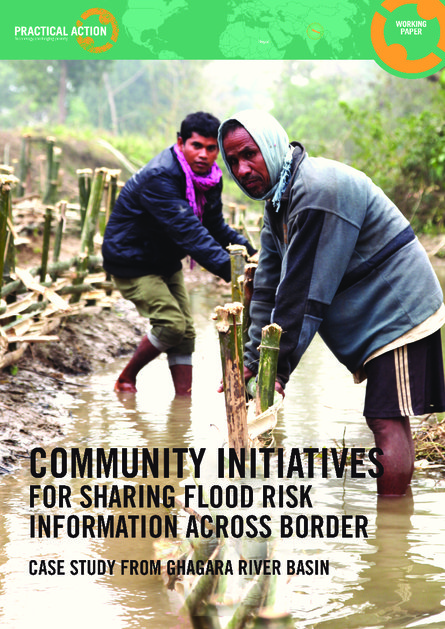
Ghaghara River is the largest tributaries of Ganges River system. This river cuts through Himalayas in Nepal and joins Sharda River in India, hence is trans-boundary in nature. In Nepal’s case Karnali, Babai and West Rapti River contribute largely to Ghaghara catchment and all these perennial rivers bring annual episodes of flood in the northern plains of Nepal and India. So, trans-boundary cooperation and collaborations is necessary to manage this cross-border flooding and reduce loss of lives and properties across Nepal and India.
Community based Flood Early Warning System (CBFEWS), are operational in major river basins of Nepal including Karnali, West Rapti and Babai River. Participation of local communities via Community Disaster Management Committees (CDMCs) and task forces have been found effective in complimenting the flow of flood warnings across vulnerable communities and making communities well-resourced and prepared for flood response. However, these kinds of community practices have hardly gone beyond borders for transboundary information exchange and risk information sharing across Nepal and India. Realizing the essence of trans-boundary information exchange, Practical Action andPurbanchal Gramin Vikas Sanstha (PGVS), a Lucknow based NGO of India jointlyestablished linkages between upstream communities of Nepal to downstream communities of India along KarnaliRiver. Working with border communities, Civil Society Organisations (CSOs), entrepreneurs, journalists and humanitarian agencies of Nepal and India, a loose network forinformation sharing have been developed and put into practice to jointly cope with Karnali flood. This network is now serving as a gateway to share and exchange flood related information across vulnerable border communities and platform for discussions and advocacy on cross-border issues to relevant government entities of both countries.
This paper discusses the need of community level coordination and collaboration for flood information exchange across Indo-Nepal Border. Presenting a case study from Ghagara (Karnali/Sharda) River basin where border communities are taking initiativesfor flood risk information sharing.This paper highlights the key issues, challenges and prospects for cross-border collaboration to jointly cope with the trans-border river flooding across India and Nepal.This initiative is a part of Global Flood Resilience Programme undertaken by multi-year resilience alliance of Z Zurich Foundation,Practical Action, International Federation of Red Cross and Red Crescent Societies (IFRC), International Institute for Applied Systems Analysis (IIASA) and Wharton Business School's Risk Management and Decision Processes Center (Wharton).
